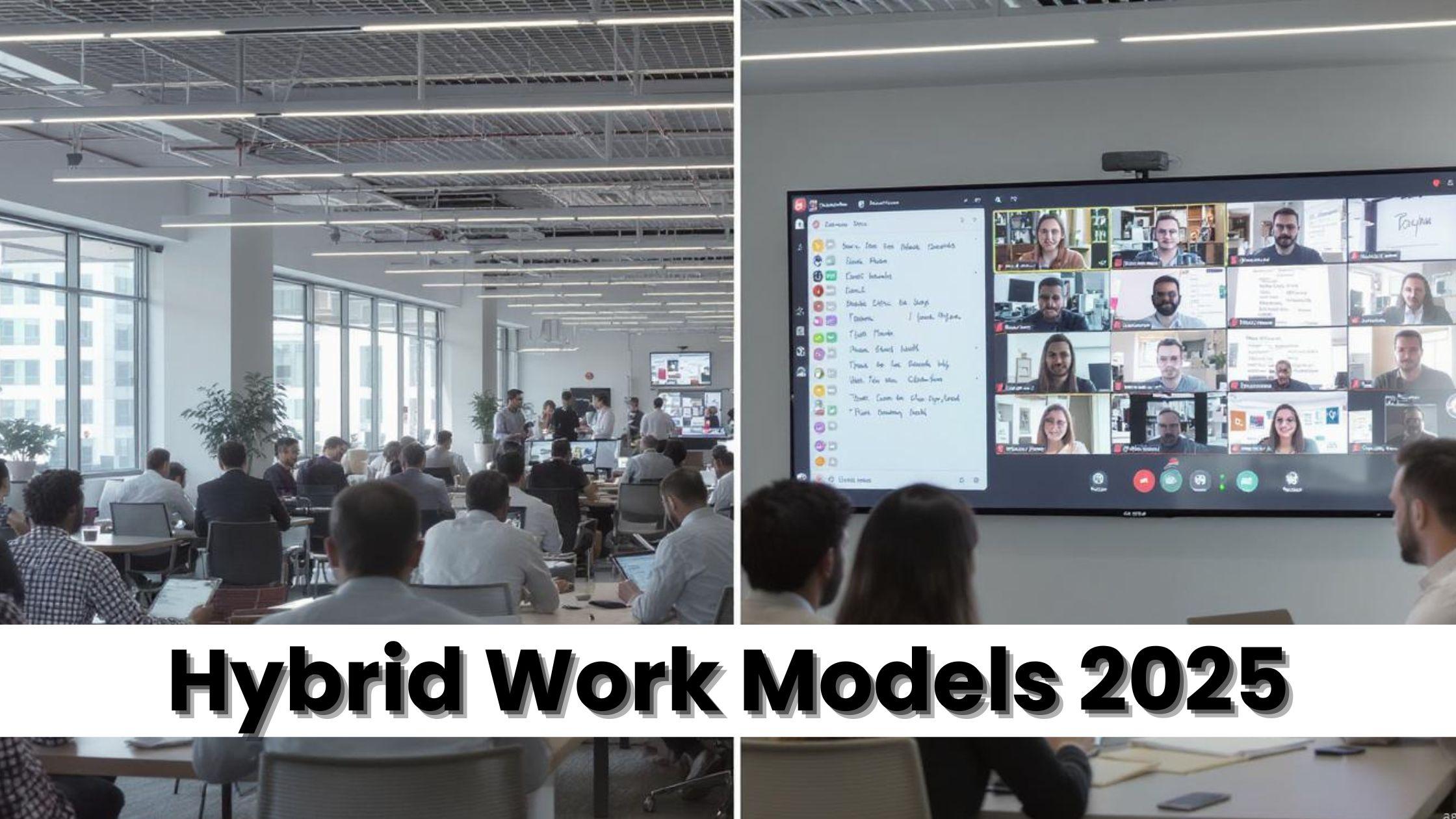Managing Performance in Hybrid Teams

In Hybrid Work Models 2025, managing performance effectively is critical to ensure productivity, engagement, and business success. Hybrid teams, where employees work both remotely and in-office, require a performance management system that balances autonomy, accountability, and clear expectations. Organizations that adopt modern performance strategies can maintain high standards while supporting employee flexibility.
Shifting from Time-Based to Outcome-Based Performance
Traditional performance metrics, such as hours logged or physical presence, are ineffective in hybrid work. Outcome-based performance management focuses on results, deliverables, and impact. By setting measurable goals, leaders can assess contributions objectively, allowing employees to manage their schedules while meeting expectations.
Clear Goal Setting and KPIs
Clear, well-defined goals and key performance indicators (KPIs) are essential for hybrid teams. Employees need to understand what success looks like and how their contributions impact the organization. Regularly reviewing goals ensures alignment with business objectives and provides opportunities for timely feedback and course correction.
Regular Check-ins and Feedback
Frequent check-ins and feedback sessions strengthen performance management in hybrid environments. Weekly or bi-weekly meetings, both one-on-one and team-wide, enable managers to track progress, address challenges, and recognize accomplishments. Constructive feedback fosters growth, maintains motivation, and ensures continuous alignment with organizational priorities.
Leveraging Technology for Performance Tracking
Technology tools play a vital role in managing hybrid performance. Platforms that track project progress, monitor task completion, and provide analytics on individual and team performance enable managers to make data-driven decisions. Transparent tracking systems increase accountability while empowering employees to manage their workload effectively.
Encouraging Self-Assessment and Reflection
Self-assessment encourages employees to evaluate their own performance, set personal development goals, and take ownership of their contributions. Reflection promotes accountability, helps identify areas for improvement, and aligns personal objectives with team and organizational goals.
Balancing Autonomy with Accountability
Hybrid work requires a balance between autonomy and accountability. Employees should have the freedom to choose how and where they work, while managers ensure outcomes are achieved. Trust and clear expectations are essential for maintaining high performance without micromanagement.
Recognizing and Rewarding Achievements
Recognition and rewards are crucial for motivation in hybrid teams. Celebrating achievements through virtual shout-outs, awards, or performance-based incentives reinforces positive behavior and fosters engagement. Recognition ensures employees feel valued, regardless of their work location.
Addressing Performance Challenges
Hybrid teams may face performance challenges, including miscommunication, isolation, or lack of access to resources. Managers should proactively identify obstacles, provide support, and implement solutions to maintain productivity. Addressing challenges early prevents minor issues from escalating into significant problems.
Promoting Continuous Development
Performance management is closely linked to training and development. Organizations should provide learning opportunities aligned with performance goals to help employees grow and enhance their skills. Continuous development improves productivity, prepares employees for future roles, and strengthens overall team capability.
Fostering Collaboration and Engagement
Collaboration drives performance in hybrid teams. Encouraging knowledge sharing, teamwork, and cross-functional projects ensures that employees remain engaged and productive. Tools, regular meetings, and transparent communication facilitate collaboration and enhance team outcomes.
Leadership’s Role in Performance Management
Leaders play a critical role in guiding performance in hybrid environments. Effective leaders provide clear expectations, consistent feedback, and support for employee development. Empathetic leadership that balances accountability with flexibility inspires employees to deliver their best work consistently.
Managing performance in Hybrid Work Models 2025 requires a holistic approach that combines outcome-based metrics, transparent communication, recognition, and continuous development. By implementing modern performance management strategies, organizations can maintain productivity, support employee growth, and ensure success in a hybrid work environment.
Read Full Article : https://bizinfopro.com/blogs/hr-blogs/hybrid-work-models-2025-best-practices-for-flexibility-and-productivity/
About Us : BizInfoPro is a modern business publication designed to inform, inspire, and empower decision-makers, entrepreneurs, and forward-thinking professionals. With a focus on practical insights and in‑depth analysis, it explores the evolving landscape of global business—covering emerging markets, industry innovations, strategic growth opportunities, and actionable content that supports smarter decision‑making.
- Art
- Causes
- Crafts
- Dance
- Drinks
- Film
- Fitness
- Food
- الألعاب
- Gardening
- Health
- الرئيسية
- Literature
- Music
- Networking
- أخرى
- Party
- Religion
- Shopping
- Sports
- Theater
- Wellness



